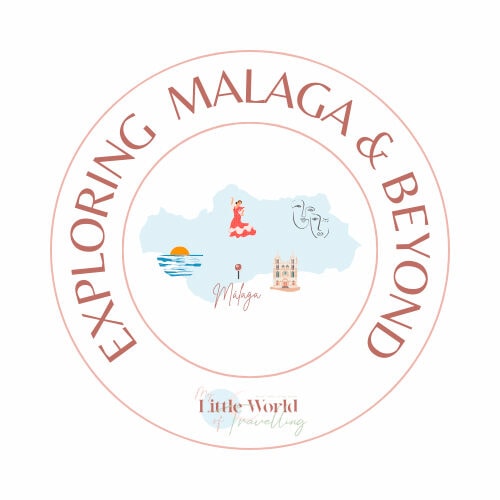An Insider’s Guide to Living in Malaga as an Expat
Malaga is considered one of the best cities to live in Spain for expats. Its sunny weather all year round, beautiful beaches and nature, laid-back atmosphere and delicious traditional food are some of the few reasons why many people choose Malaga as their home base.
I’m from Malaga, but I have friends who are expats in Malaga and other nearby coastal towns, so I know from their experiences what it’s like to move to the city.
If you’re wondering if this is the right city for you, in this living in Malaga blog, you’ll discover the pros and cons of living in Malaga, the best places to live in Malaga and the cultural aspects that will help you make a decision.

This post contains affiliate links, and as an Amazon Associate, I earn from qualifying purchases. If you click through and purchase something, I receive a small commission on the price at no extra cost to you. This helps me keep the content up to date and make other improvements to the blog.
Pros of living in Malaga
The sunny and warm weather
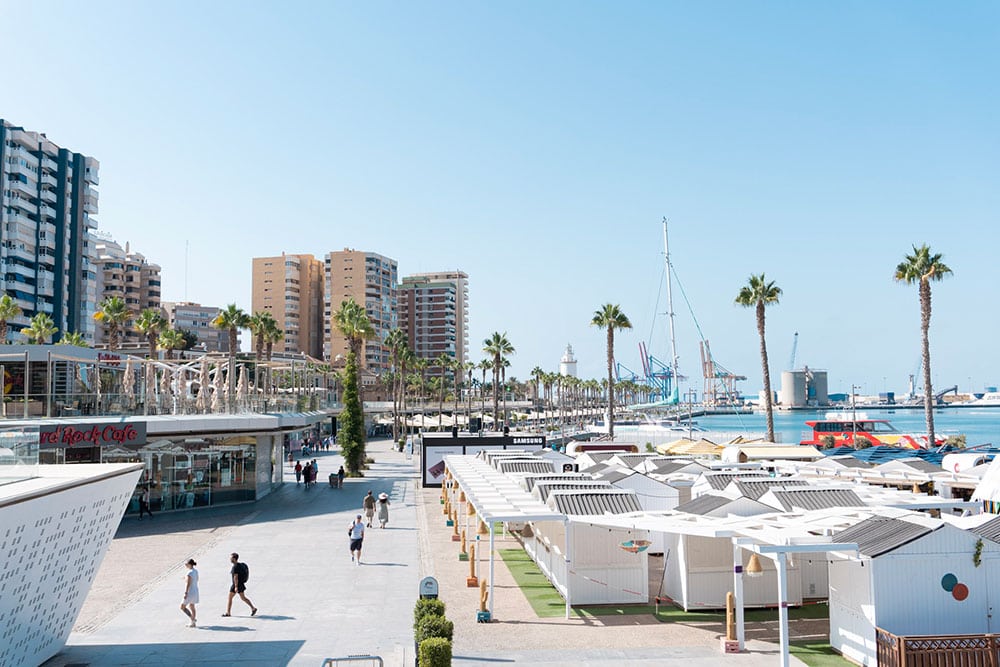
One of the main reasons why people move to Spain is the weather. Malaga is one of the sunniest places in Costa del Sol and Spain, so if you want to escape from the cold and cloudy winters or unsettling springs and autumns, there is no better place for you.
The pleasant temperatures and sunny weather allow you to do outdoor activities all year round, from hiking and cycling to swimming and kayaking. Malaga isn’t only about beaches, mountains, lakes and rivers too, making it a paradise for nature lovers.
However, it’s good to know that Malaga gets very warm during the summer months (from June to September) as temperatures can reach up to 40 degrees, and there are some sporadic days in which the city experiences “terral”, a warm and dry wind that makes you feel even warmer.
Most locals have a siesta after lunch and stay in, so you won’t see many people outside from 3 pm to 5 pm. If you do, it’s probably at the beach or the communal swimming pool.
The daylight in winter
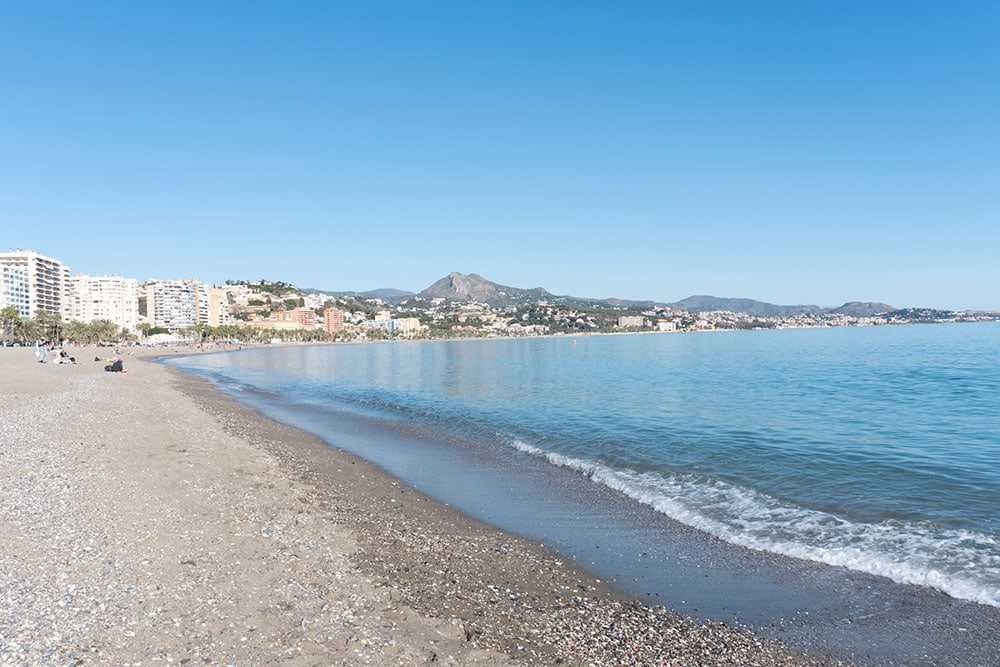
If you are from any country in the north of Europe, you’ll probably appreciate the number of light days you get in Malaga in winter.
Some countries have very short light hours during winter, which means it gets dark very early, maybe around 3 pm, it’s cold, and you don’t have much else to stay home.
Living somewhere with a few hours of light can affect your mood and well-being as you don’t get much vitamin C either, and I know this first-hand.
Luckily, not only does Malaga have mild to warm weather in winter, but longer days too. It doesn’t get dark until 6:30 pm, allowing you to do many things after work.
The delicious Andalusian cuisine

Spanish cuisine is very diverse, and each region has its own delicacies and twists in preparing traditional dishes. But if you like Mediterranean flavours, you will love the traditional food in Malaga and Andalusia.
Despite fish and seafood being a big part of Malaga’s gastronomy, other ingredients are used in traditional dishes. For example, other key ingredients include raisins, high-quality fruits and vegetables like “tomate huevo toro” (a type of tomato that grows in the region).
When living in Malaga, you have fresh and high-quality fish, vegetables and fruits on your doorstep, and this is something that does make a difference if you’re into eating healthy and local produce.

Some traditional foods in Malaga include:
- Gazpachuelo – fish stew
- Ensalada malagueña – Malaga-style potato salad
- Espetos de sardinas – sardines skewers
- Fritura malagueña – fried fish
- Tortas locas – small cakes filled with pastry cream and topped with orange frosting
📌If you’re new to the city, you may want to have fun and make friends while trying and learning about some of the traditional dishes in the city. Check out food experiences with Eatwith!
The diverse cultural activity
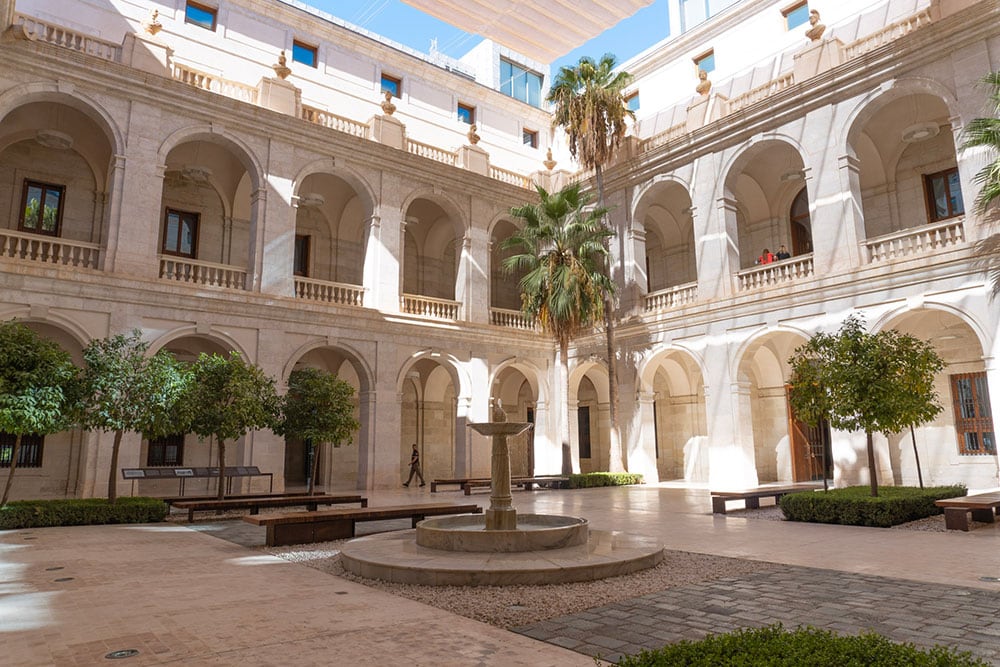
A great advantage of living in Malaga is the extensive cultural activity. It isn’t like living in Barcelona or Madrid, but you can find many cultural activities to do in Malaga.
There are over 30 museums in Malaga, each offering something different.
If you love modern art, head to Picasso Museum Malaga or Malaga Carmen Thyssen Museum. If you want to learn about the history of the city, go to Malaga Museum. If you love wine, go to the Malaga Wine Museum. And the list goes on.
In addition to the museums, you can visit art galleries, enjoy live flamenco, and explore historical buildings like Alcazaba de Malaga.
The lively festivals and parties

There is this misconception among Spaniards that Andalusia is very laid-back, people don’t work as much as in other Spanish counties, and Andalusians only party.
I strongly disagree and think that it’s an extreme exaggeration of how life works in Andalusia; however, something that is true is that we Andalusians know how to celebrate festivals and parties.
When moving abroad, you’re looking for authentic experiences and living in Malaga or anywhere else in Southern Spain will allow you to have these.
Most of the celebrations take place in the summer months, but this doesn’t mean there aren’t parties or fairs at any other time of the year.
An unmissable event in Malaga is Feria de Agosto, Malaga’s city fair, which is held in mid-August and lasts 7 to 9 days. Dance flamenco (malagueñas, a type of flamenco from the region), enjoy a glass of Malaga’s sweet wine and go to the attractions.

Important Festivals in Malaga:
- 5th January – Cabalgata de Los Reyes Magos (The Three Kings parade)
- February – Carnaval (carnival)
- 24th June – Noche de San Juan
- 15th August to 22nd August – Feria de Malaga
- December – Navidad (Christmas)
The stunning nature

Malaga is home to many beautiful beaches. You can find popular sandy beaches, rocky crystal clear water beaches or virgin beaches only locals know about.
If you love living by the sea, Malaga is a perfect option for you. But if you’re into hiking and national parks, you’re in luck too.
One of the main natural parks in Malaga is Los Montes de Malaga, situated 35-minute drive from the city, and that’s not all because you can find some of the most incredible landscapes in Spain in the region.
For example, Caminito del Rey, which was considered the most dangerous hike in Europe, and El Torcal de Antequera, another nature gem.
📌If you’re planning to go to Caminito del Rey, I highly recommend booking your tickets in advance. This incredible hiking trail has become very popular and is getting busy. Check out and book tickets here.
The international airport
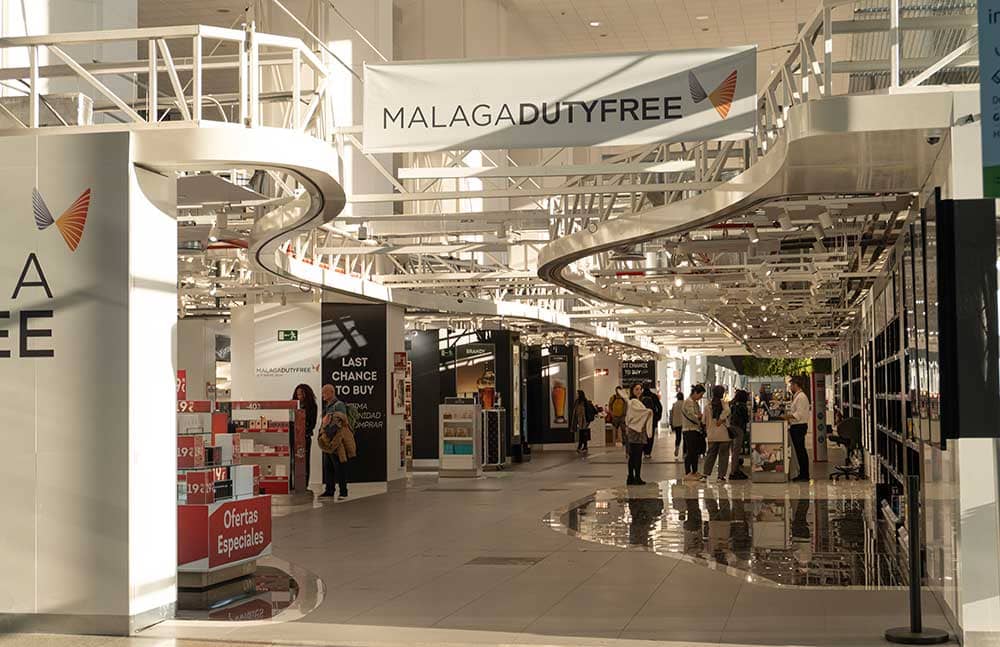
Malaga-Costa del Sol Airport is among the top five airports in Spain, which means there are plenty of national and international routes to travel to other destinations.
This is very important if you love travelling and want to be able to go home without doing a layover in other countries too.
The airport is also 15 minutes drive from Malaga city centre, so it saves you travel time, and it is very well-connected by public transport (underground, bus, taxi).
The expat community
It’s always easier to adapt quickly to a country when there are other expats, just like you, who want to make friends with people who really understand them.
Making friends with the locals is a must when moving abroad to feel integrated, but meeting other expats can really help you with things you still don’t know, especially when you’re new.
For example, expats who have been living in Malaga for a while can give you tips on how to fill in some documents, introduce you to other friends, and cheer you up when you feel down.
There are many ex-pats in Malaga and Costa del Sol, so it won’t be difficult to make friends at the beginning. You can use Facebook groups, the Meet Up website and other platforms to start a conversation with people in Malaga, even before you move!
Cons of living in Malaga
The lack of job opportunities
The biggest con of living in Malaga is the lack of job opportunities, not only for expats but locals too.
Finding a good job in Malaga isn’t easy because expectations have risen, but wages have been kept the same.
The sector in which you’re likely to find a job is the tourism and hospitality sector which is very strong during the summer months and special dates like Christmas and Easter. But it isn’t as popular in winter.
This means that many hospitality jobs are seasonal, even more so if you work in the Costa del Sol rather than Malaga City.
If you don’t want to work in the hospitality sector, which I totally understand as it’s very demanding, finding a marketing or remote job will be easier for you.
Working remotely from Malaga is by far one of the best options because you’re likely to earn more money and you can live very well.
The slow and tedious paperwork
Spanish bureaucracy is very slow, and even the smallest document you need to hand in can take ages to be processed.
My biggest advice is to be on top of your documents and paperwork so that if you need a document for something, you aren’t worried if it’s going to come on time.
Being organised will save you from unpleasant situations.
The lack of international food options

When you move to a new country, you’re likely to adapt to eating its traditional food. This doesn’t mean you won’t cook meals you used to do at home, but you’ll incorporate dishes from your new place.
If you’re all about eating traditional food, that is amazing, but if you fancy something a bit different, you’re going to struggle a little bit.
Nowadays, more and more places offer international dishes in Malaga; however, local food is still predominant.
Unlike other cities like London, it’s going to be difficult to find certain cuisines. For example, Indian cuisine isn’t a big hit in Malaga or Spain, and you’ll struggle to find a good Indian restaurant.
And if you look for something more specific, like Vietnamese or Polish, it’ll be difficult to find a place to have these types of foods.
The most popular cuisine in Malaga, after the local food, is Italian, as Spaniards are very much into their own food and everything Mediterranean. There are plenty of Italian restaurants in Malaga and Costa del Sol.
Having said so, there are more and more sushi and Thai restaurants too.
The heating system in houses
You may be wondering why this is a con of living in Malaga if the temperatures are mild in comparison to other countries during the winter.
Once you’ve been living in Malaga for a while, your body will get used to the weather, and 10 degrees may be cold for you, so you’ll be wrapping yourself up in a blanket or dressing gown.
Most houses aren’t prepared for cold temperatures, so there isn’t heating, and some houses are very cold. They’re great during the summertime because you won’t need to use the air conditioning or fan so much, but they aren’t good for the few cold days in winter.
The noise
If you’re quiet, you probably don’t enjoy noisy places and people.
However, you must know that many locals, but not every local, speak quite loud, and you’ll realise this from the moment you step into a bar or restaurant.
Also, when looking at where to live in Malaga, avoid the city centre if you want tranquillity. It’s convenient and fun because the main attractions, shops and restaurants are on your doorstep, but it gets very noisy, especially on weekends, at night.

Cost of living in Malaga
First of all, Southern Spain is much cheaper than other parts of Spain. If you’re looking to move somewhere affordable, you want to avoid big cities like Barcelona and Madrid.
Most Andalusian cities offer a cheap cost of living, but some are still considered expensive. An example is Seville.
Life in Malaga used to be more affordable, but it’ll be cheaper if you come from countries like the UK or the US.
Food, public transport, and leisure activities like eating out are some of the cheapest things in Malaga. On top of this, if you love visiting museums and other cultural buildings, you can visit most of them for free on specific days (normally on Sundays from 2 pm).
The most expensive items are petrol, like anywhere else, and rent. The monthly rent has increased, but you can still save money by living in neighbourhoods further from Malaga city centre or nearby towns.
Cost of living in Malaga
- Rent for 1 bedroom apartment in the city centre – € 940
- Food shopping for a month – € 200
- Bus monthly pass – € 30
The average salary is about € 1300, but this is higher in some roles.
Best areas to live in Malaga

Centro histórico
Living in the Old Town is the best option for you if you love being surrounded by historical buildings and attractions as well as the best restaurants and bars, and you don’t want to miss out on any parties or big events going on in the city.
It’s a vibrant and lively place to live where everything is on your doorstep, including the beautiful Malagueta Beach.
The main downsides of living in Malaga Old Town include the noise from clubs and restaurants, even more when events take place and the high rent prices.
Huelin/La Misericordia
If you love the idea of living close to the city centre but don’t want to spend lots of money on renting a 1 bedroom apartment, Huelin is a great option.
Huelin is a neighbourhood relatively close to the city centre, calmer and less touristy too.
The rent in this area of the city is lower, and you won’t feel like you’re missing out on living in Malaga city centre because you’re close and this area has a bit of everything – supermarkets, bars, parks and even a beach.
A bit further than Huelin, you’ll find La Misericordia. This is an area, on the west side of the city, which is also good to live in if you want a more authentic experience of what it is like to live in Malaga. The best about La Misericordia is its beautiful beach promenade and beach!
Pedregalejo and El Palo
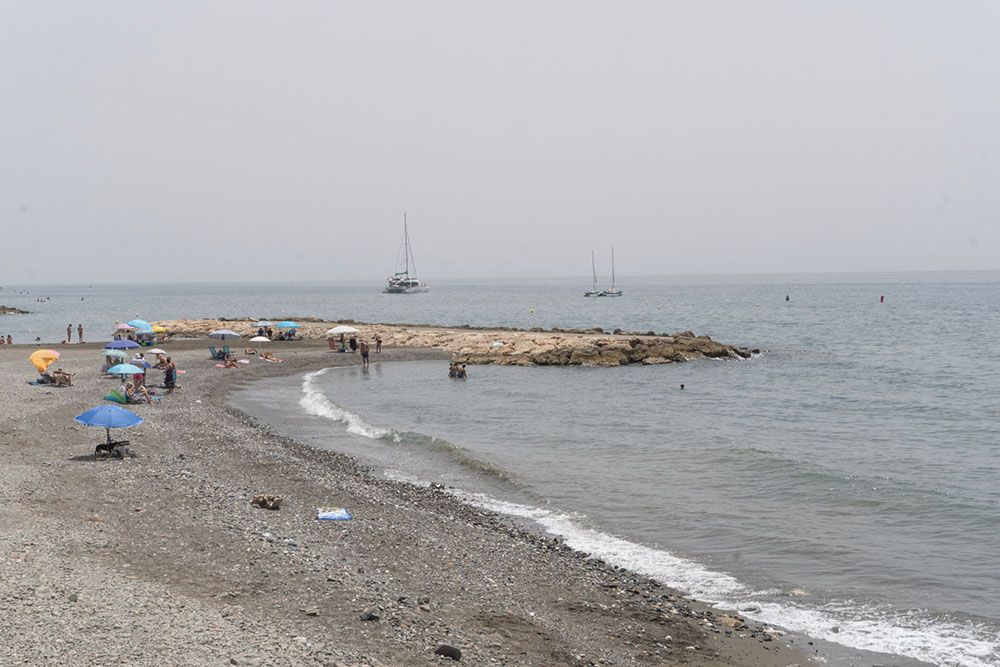
Another popular place to live in Malaga is El Palo. This is a good area for families as it is tranquil and has all the amenities you need – parks, beaches, restaurants, etc.
Here you can find apartments that have a rent very similar to other parts of the city and live very comfortably.
Teatinos
Teatinos is the perfect neighbourhood for young professionals and students. It’s a residential area with a vibrant atmosphere because restaurants and bars surround it.
It’s ideal for students as most university buildings are in this part, so it makes it very easy to go to university. This is even more important because many degrees offer lessons in the morning and evening, so living in the area minimises your travel time.
In addition to this, Teatinos has convenient supermarkets and is very well connected to other parts of Malaga. You can either take the bus or the underground to travel to the city centre.
📌 One of the areas to avoid in Malaga is La Palma Palmilla.
Things to do in Malaga
The city is home to beautiful attractions, museums, art galleries and other fun activities to do. If you’re wondering what things you can do during your time in Malaga. Here are some top things you need to do:
- Visit Alcazaba de Malaga
- Watch the sunset at Gibralfaro viewpoint
- Go to Gibralfaro Castle
- Visit Picasso Museum
- Go inside Malaga’s Cathedral
- Explore Jardín de la Concepción
- Eat at El Pimpi
- Go to Atarazanas Market to taste local produce

Extra unique activities to do in Malaga
In addition to these incredible activities, make the most of your time in Malaga to explore nearby towns like Benalmadena, Marbella and Nerja, other Andalusian cities or even go on a day trip to Gibraltar.
Frequently Asked Questions About Living in Malaga Spain
Is Malaga a good place for expats?
Malaga is a great place to live for expats. The lively atmosphere, the sunny weather, the food and the expat community are reasons expats and digital nomads choose Malaga as their home.
In addition to this, Malaga is also an affordable destination.
Is Malaga expensive to live in?
No. Malaga, as well as other Andalusian cities, aren’t expensive to live in. Food, public transport, leisure activities and rent are affordable.
Despite being cheap, you need to avoid living in some areas to pay reasonable rent.
Is it possible to live in Malaga without speaking Spanish?
Many people speak decent English in Malaga and Costa del Sol, so living in Malaga without speaking Spanish is possible.
However, it isn’t going to be easy to communicate in English in certain scenarios (like hospitals unless you look for a private one in the Costa del Sol).
By learning Spanish, you’ll show interest in the place and local people, so I would always recommend learning the language before moving to Malaga.
Conclusion on living in Malaga
To recap, Malaga is an excellent place for expats and digital nomads to live, from the beautiful sunny weather to cultural activities and impressive nature.
Although there are some cons of living in Malaga, the pros really make up for the cons.
Before moving abroad, don’t forget to get insurance. Insurance for expats is very important, and even more, if you take care of other people dependent on you, like children, you have a mortgage, or just if you want peace of mind.
If you’re an expat in Spain, I’d be really interested to hear about your experience in Spain. Let me know in the comments below!
Cristina xx
Save this living in Malaga pros and cons guide on Pinterest for later


⭐ Mini Guide to Living Abroad
Should I get expat travel insurance?
ABSOLUTELY! — For your peace of mind, get your expat travel insurance with SafetyWing!
How do I get a job in Spain as an expat?
You can find work in Spain via job boards, word of mouth, or agencies. If you plan to work remotely, look for jobs on websites like FlexJobs.com. They offer 100% remote roles.
What’s the best way to open a bank account in Spain?
I’ve been using La Caixa Bank for many years. However, I love visiting other countries and spending some time there. So I found Wise, which offers free global accounts. It’s super convenient, and you won’t have to open accounts everywhere you move! You’re also guaranteed the cheapest money transfers.
How do you make friends in Spain?
I highly recommend using Facebook to connect with people. There are many Facebook Groups for expats in each city. Also, you can use Meetup.com. It’s free to join, and you can meet people who share a similar hobby as you!
What’s the best way to learn Spanish?
Go to language exchanges, use apps like Duolingo or sign up for online lessons in Preply. They’ll help you learn some Spanish before moving.
